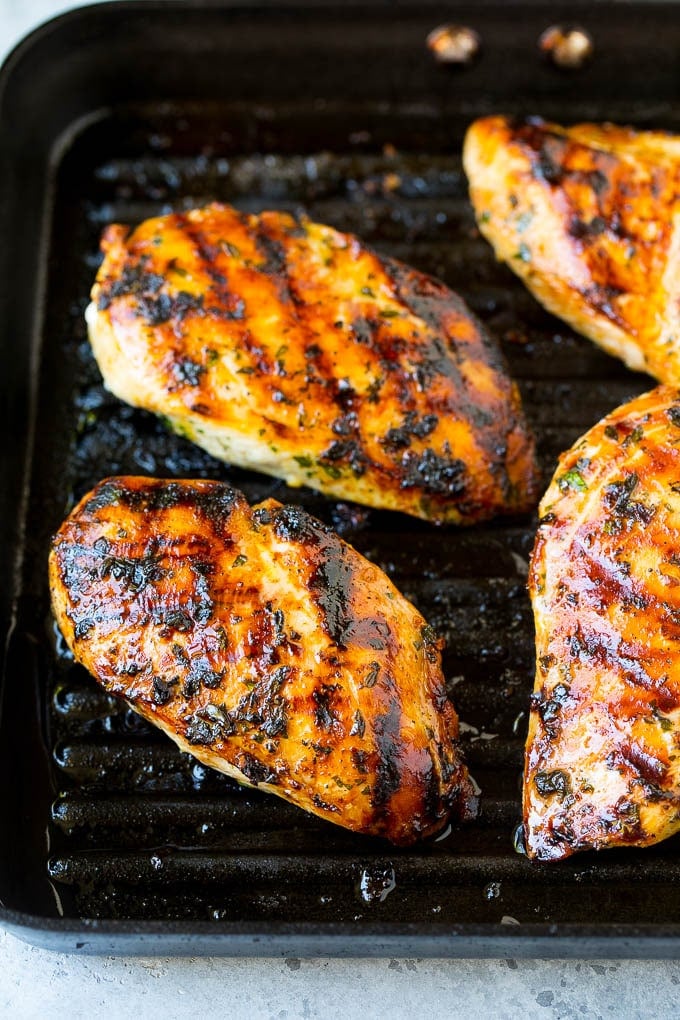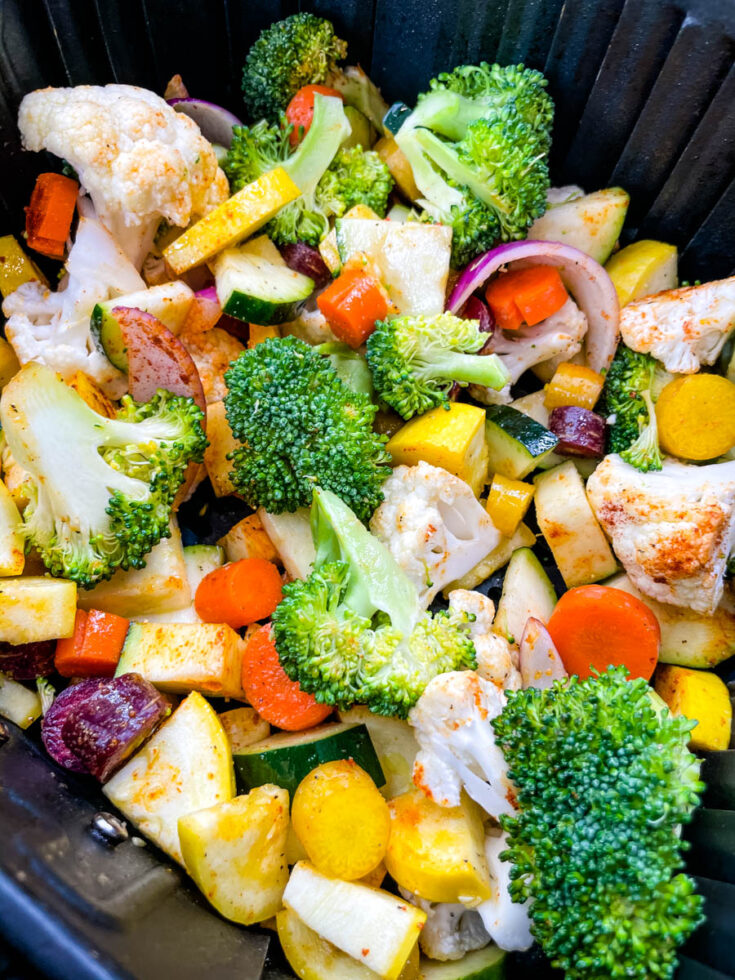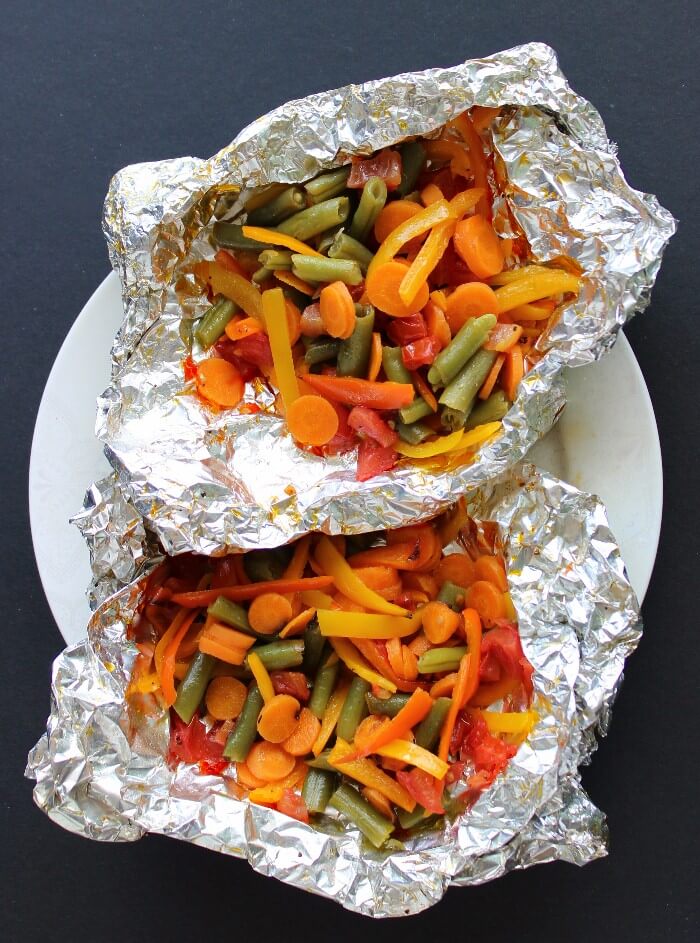This time, we’re going to talk about How Long Can Cooked Veggies Stay In The Fridge. There is a lot of information about How Long Do Cooked Vegetables Last Out Of The Fridge on the internet, of course. Social media are getting better and better quickly, which makes it easier for us to learn new things.
Do Cooked Vegetables Last Longer Than Raw and how long can cooked greens stay in the refrigerator are also linked to information about Can You Freeze Cooked Vegetables. As for other things that need to be looked up, they are about How Long Do Cooked Vegetables Last in the Fridge? and have something to do with How Long Can You Freeze Cooked Vegetables?.

36 Unexpected Facts About How Long Can Cooked Veggies Stay In The Fridge | How Long Can I Keep Steamed Vegetables In The Fridge For Baby
- Yes, you can freeze cooked collard greens. Freezing them will impact their taste and texture, but they will still be safe to eat. They will last in the freezer for about 3-4 months. - Source: Internet
- Collard greens will last for about 3-5 days when stored in a cool, dry place. If you’re planning on keeping them out at room temperature, make sure to keep them in an airtight container or bag to prevent them from drying out. When cooked, collard greens will last for about 2-3 days in the fridge. - Source: Internet
- How long can cooked vegetables last in the fridge? A good rule of thumb is to store cooked vegetables for 3-5 days. Only pickled goods can survive for two months if homemade and 12 months if store-bought. Never keep vegetables past their expiration date as the risk of foodborne illness increases with time. Which container should cooked vegetables be stored in? Cooked vegetables, including salad greens, must be stored in an airtight container that is leak-proof and BPA-free. It must also have secure lock tabs on all four sides. - Source: Internet
- In general, vegetables will show signs of decay through scent and appearance. If you’re unsure about any vegetables that you have cooked, thoroughly inspect them. Mold may appear as white or blue or green flecks on the surface of the vegetables. You might also notice that they have a strange smell. - Source: Internet
- Generally, cooked vegetables have a lot more moisture than raw vegetables, making them more prone to bacterial infections. Also, vegetables with high water content, such as tomatoes, are prone to going bad faster. So, how long can you keep cooked vegetables in the fridge? If prepped the right way, the simple answer is that they can be stored safely in the refrigerator for 3-5 days. - Source: Internet
- Raw and cooked veggies have various nutritional properties that your body digests and absorbs differently. Veggies that have been heated have different amounts and types of nutrients than vegetables that have not been heated. That might be advantageous! - Source: Internet
- Foods that are ready to eat and uncooked foods should both be kept on the top shelf. In the meantime, uncooked meats should be placed at the bottom of the refrigerator. This way, juices from raw meat or poultry won’t drip onto your leftovers and endanger their safety. - Source: Internet
- The fresher the healthier: Fruits and vegetables straight from the farm or garden are super high in nutrition. How you store them —temperature, water, the air around them — is important for maintaining their vitamins, minerals, flavor, and appearance. Basically, you should keep veggies at the lowest temperature they can withstand without injury. - Source: Internet
- If you intend to use your cooked vegetables in a casserole or mixed into a dish rather than serving them individually as a side, you don’t need to fully cook them. Place them on the stove or in the microwave just long enough that they are not fully frozen. Then add them to your dish and bake it as directed. - Source: Internet
- However, the storage times can vary depending on the cooking method. If you want to store cooked vegetables for longer, we recommend freezing them in sealed zip lock bags. Most cooked produce will easily last 10-12 months in the freezer. Check out the storage time for vegetables prepared in different ways: - Source: Internet
- According to Bastyr University’s Department of Nutrition and Exercise Science, Tomatoes lose a lot of vitamin C when cooked. However, a study from 2002 indicated that cooked tomatoes have much higher quantities of lycopene than raw ones. This is most likely because heat aids in breaking down the dense cell walls, which contain many key components. Lycopene is one of the most potent antioxidants on the market. Research has shown that it may reduce the risk of various chronic diseases, including cancer and cardiovascular disease. - Source: Internet
- Also, make sure you do not store your cooked vegetables near ethylene-producing fruits like peaches or apples. The gas given off by these fruits can cause darkening in ethylene-sensitive vegetables like eggplant and broccoli. So, keep the ethylene-producing fruits in a separate section of your fridge and away from your cooked vegetables. - Source: Internet
- If you notice the list above that mentions some vegetables that don’t freeze well you will also notice that those vegetables are not typically cooked when served. They are most often served cold rather than cooked in some form. This does not necessarily apply to all of them all of the time. - Source: Internet
- Ultimately the choice is yours. Freezing cooked vegetables and freezing raw vegetables that have been blanched primarily delivers the same results in the end. The benefit to either option is that you can prepare the vegetables however you like before doing so. - Source: Internet
- Salmonella and E. coli are two bacteria that can develop remarkably quickly and make you very unwell. This is less of an issue with veggies than with other meals like meat and eggs, but you still need to exercise caution. - Source: Internet
- All cooked food, including vegetables, must be stored in airtight containers or sealed zip lock bags. The containers must be made of food-grade plastic and should be BPA-free. High-quality containers will also be leak-proof and will not absorb the flavor or smell of the prepared vegetables. - Source: Internet
- How do you store your collard greens? Do you put them in the fridge or freezer? What if I told you that you could freeze cooked collard greens and they would taste just as good as when they were fresh? Would you believe me? Well, it’s true! You can freeze cooked collard greens without any problems. In fact, frozen cooked collard greens make a great side dish for any meal. So, if you have some extra cooked collard greens, don’t throw them away – freeze them instead! - Source: Internet
- Antioxidants and water-soluble vitamins, such as vitamins B and C, diffuse throughout the bloodstream after being absorbed through cell membranes. They deteriorate more quickly the hotter it is. Raw veggies containing water-soluble nutrients are more prone to heat damage. - Source: Internet
- Vegetables that have been cooked shouldn’t ever be kept at room temperature. The typical room temperature in a home is between 68 and 76 degrees Fahrenheit, which falls squarely into the “danger zone” (40 to 140 degrees Fahrenheit), where bacteria flourish. Your cooked vegetables should never be kept at room temperature for more than two hours. If the temperature is above 90°F, your cooked veggies shouldn’t be left outside for more than an hour. - Source: Internet
- Collard greens are a leafy green vegetable that can be found in the grocery store. They are a good source of fiber and vitamin C. Collard greens can also be cooked in a variety of ways, including boiling, steaming, and frying. One way to cook collard greens is to freeze them. - Source: Internet
- The Food and Drug Administration in the U.S routinely publishes a comprehensive set of guidelines to help prevent the spread of foodborne illnesses. According to the FDA, the most common cause of food-related diseases is storing foods at the wrong temperature. So, you need to know the correct time duration and temperature at which to store cooked vegetables in the fridge. - Source: Internet
- Green vegetables are a very nutritious food and should be have at every meal. We increasingly tend to consume more vegetables during meals because of the health benefits they bring. It provides the body with essential fiber and vitamins. However, when you have cooked vegetables and let them stay overnight in fridge for the next use, you are now harming your health. - Source: Internet
- How long do cooked vegetables last in the fridge? Most cooked vegetables will last between three and seven days in the fridge, and some will last for up to ten days if stored correctly. It’s important to be aware that different vegetables have different storage estimates, so don’t just assume there’s a blanket rule for all of them. Canned vegetables will generally last longer than freshly cooked ones. - Source: Internet
- Do not, under any circumstances, place your cooked veggies in the pan they were cooked in straight into the refrigerator. Chemicals may gradually seep into your food if constructed of copper or aluminum; if the food is salty or acidic, it may destroy your pans. They can allow more bacteria in because they aren’t made to be sealed for storage. - Source: Internet
- Fresh to frozen offers variety: Fresh fruits and veggies are seasonal, so freezing them when they’re available lets you enjoy them year-round. When frozen at their peak of freshness — especially if “flash frozen” (frozen quickly at extremely cold temperatures) — and stored in freezer-safe containers at a constant temperature, they retain their nutrients. And, if they were properly stored beforehand, they can last in the freezer for 8 to 10 months. - Source: Internet
- Love leftovers! You can store cooked veggies in airtight containers in the refrigerator for up to 7 days. If stored much longer, mold might develop. Bear in mind that fruits and vegetables with higher water content (cucumber, strawberry, tomato) lose their flavor and quality faster than lower-water varieties (garlic, lima bean, potato), and seasonings added during cooking can shorten the storage time. So, freeze any extras right away for healthy leftovers later! - Source: Internet
- Allow cooked vegetables to fully cool to room temperature – do not overcool the vegetables as you don’t want to risk them going bad. They can typically cool in about 30 minutes. Scoop your cooked vegetables into an airtight container or a freezer bag. If there is juice with your vegetables, pour that into your storage method as well. Seal tightly and place into freezer Label with a title and date for the vegetables Store in the freezer up to 9 months safely That’s it! Your cooked vegetables are waiting patiently for the day they are needed. - Source: Internet
- Significant amounts of protein, vitamin C, and chlorophyll are lost during several cooking processes. Vegetables steamed are kept from the heat source and come into minimal contact with maximizes nutritional retention. Between 50% and 90% of the nutrients can be maintained, so this is one of the greatest ways to consume cooked veggies. - Source: Internet
- Pull your cooked vegetables from the freezer Place into a pan with a lid Cover the pan and heat to medium heat As the vegetables begin to thaw under the heat, stir them and break them apart. Warm to your desired temperature and serve Alternatively, you can heat your frozen cooked vegetables in the microwave. Place the frozen vegetables in a microwave-safe container and microwave in about 5 minutes, stirring after every minute. It is not necessary to add water for these methods unless you feel as though they don’t have enough moisture during cooking. - Source: Internet
- Freezing cooked vegetables is relatively simple. You don’t require any special tools or supplies. Grab some freezer bags or some airtight containers and you’re pretty much set to freeze those cooked vegetables as much as your little heart desires. - Source: Internet
- Keep in mind the 40–140 °F risk range. Your cooked vegetables should generally be kept below 40°F and heated over 140°F. If you want to be safe, heat it higher (to at least 165oF). By doing this, it is ensured that most bacteria, if any, will be eliminated. - Source: Internet
- We’ve put together a guide to walk you through everything you should know about freezing cooked vegetables as well as the methods you should follow when doing so. Be aware that there are some vegetables that freeze better than others but for the most part the freezing instructions will work across the board. If you don’t have some, you’ll certainly want to get some quality double-zip freezer bags to store your vegetables. - Source: Internet
- Store them right: Some vegetables like to be kept at above freezing (broccoli, kale, peas) in the fridge, while others like temperatures a little higher (eggplant, onions, pumpkins). Humidity matters too: Transpiration (loss of water) affects how long fruits and veggies last; some like it cold and humid (honeydew melon, peppers, sweet potatoes), and others prefer cool and dry (garlic, onions, pumpkins). For reference, keep these handy charts from Vegetable Gardener in your kitchen: - Source: Internet
- Cooked rice, pasta-like barley, and quinoa are not high in protein but would still classify as medium risks foods as it contains moist where certain bacteria can still multiply to dangerous levels at room temperature. Given the development of mold growth over time, precooked and leftovers foods should be properly handled and stored to extend the shelf life of the food to preserve its freshness. In conclusion, the recommended storage for grains should be between 3 to 4 only in the fridge. - Source: Internet
- Some fruits, including peaches, kiwifruit, and apples, release ethylene gas. This may hasten the ripening of neighboring ethylene-sensitive fruits and vegetables like broccoli, eggplant, and sweet pea. Therefore, storing ethylene-producing fruits next to ethylene-sensitive veggies will hasten their ripening (and perishability). - Source: Internet
- Fruit and vegetables are extremely versatile. Most can be eaten raw, cut up and served with dips, or grated into salads. Some need to be cooked to make them edible. - Source: Internet

Here are a few tips to help you find information about How Long Do Roast Vegetables Last In The Fridge:
- Look for good places to get information about How Long Do Collard Greens Take To Cook. This can be done in libraries, on websites, or even by paid journalists.
- When looking for information about how long do cooked veggies keep in the fridge, it’s important to know that there are different kinds of online sources, like Google and YouTube. Social media sites like Facebook and Twitter are also good places to look for information about How Long Do Cooked Rice Last In The Fridge.
Video | How Long Can Cooked Veggies Stay In The Fridge
To get the best information about How Many Days Can You Keep Vegetables In The Fridge, you should read to find out how true each source is.
This article has a few videos from different places about How Long Do Roast Vegetables Last In The Fridge that will help you learn more about it. The Internet is a great place to find out about a wide range of things.
## Here are some crucial aspects concerning How Long Can You Keep Cooked Chicken In The Fridge:- How Long Can Cooked Veggies Stay In The Fridge
- How Long Can I Keep Cooked Veggies In The Fridge
- How Long Can Cooked Greens Stay In The Fridge
- How Long Can Cooked Veggies Stay In The Freezer
- How Long Do Cooked Veggies Keep In The Fridge

With so many websites and forums that talk about How Long Can I Keep Steamed Vegetables In The Fridge For Baby, it shouldn’t be hard to find what you need.
Most people are used to getting information about How Long Can You Keep Cooked Vegetables in the Fridge? in a very different way than this. It lets you look at the information about 7 foods that you can leave out overnight and how it can be used in more detail.
 ways to put information about Greens: Storage Tips in a way that looks good and is useful. They can be used in business and marketing, and they can also be used to talk about Can You Freeze Cooked Collard Greens?. So, we also give you some pictures about How Long Can You Keep Cooked Chicken In The Fridge.
ways to put information about Greens: Storage Tips in a way that looks good and is useful. They can be used in business and marketing, and they can also be used to talk about Can You Freeze Cooked Collard Greens?. So, we also give you some pictures about How Long Can You Keep Cooked Chicken In The Fridge.
In the end, this article gives a summary of List Of Foods Absolutely Should Not Be Left Overnight Once Cooked. Also talked about are How Many Days Can You Keep Vegetables In The Fridge and How Long Can Cooked Vegetables Last In The Fridge, which you can use to compare how much you know about Can You Freeze Cooked Vegetables.